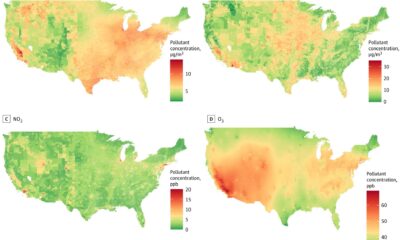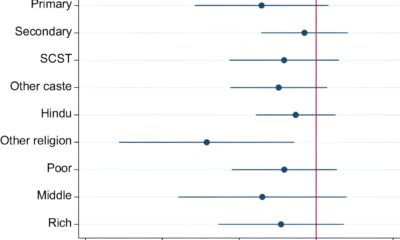Entertainment
Less than 30% of API viewers feel truly represented on screen: Research

A new study by McKinsey & Co. and the nonprofit Gold House have found that while Asian and Pacific Islander representation in the entertainment industry has made significant gains in recent decades, most API consumers do not view API representation in film and television as authentic or reflective of their own stories.
The report states that accurate representation of APIs in the media could potentially lead to an additional $2 to $4.4 billion increase in industry revenues as half of API consumers would be willing to spend more money and time to films and television programs that portray their experiences in a more authentic way.
Despite the abundance of US and foreign content featuring API characters and storylines, more than two-thirds of API consumers are dissatisfied with the authenticity of their on-screen representation; less than 30% feel well represented in film and television. Additionally, projects that focus on API characters and storylines are less likely to receive the promotional resources needed to reach a broader audience, the report said.
A survey of API industry leaders found that more than 80% of respondents did not believe API experiences are widely represented in US produced media. The research suggests that off-screen talent – including directors, writers, producers and showrunners – and on-screen representation are mutually reinforcing, as individuals in key off-screen roles influence who is cast in the on-screen roles, and lead actors. often ask to work with specific people.
“If you have an API person at the top, you’re much more likely to see API people in other roles,” an industry association leader said in the report. “The traditional executives and buyers are not from our community, and it will be difficult to make changes until we see more of them greenlighting shows and leading departments.”
The report points to films like “Everything Everywhere All at Once,” “Crazy Rich Asians,” “Life of Pi” and shows like “Beef” and “Fresh Off the Boat” as signs of the increase in API representation. But despite this progress, API actors remain underrepresented in US-produced content. In film, API representation has increased from 3% in 2002 to almost 20% in 2022. Only 17% comes from films produced outside the US, while only 3% are from US-produced films; half of the API community’s 6% share of the total US population.
According to the survey, nearly two-thirds of major movies with API leads don’t tell API race-specific stories — which doesn’t necessarily mean the entire show revolves solely around the API identities of these characters. The report points to “Beef,” which “reflected the experiences of its characters’ ethnicities without feeling the need to contextualize itself or over-explain itself for viewers outside the Asian American community.”
The study concluded with ideas that could potentially enable the film and television industry to leverage more authentic API representation: increasing the likelihood of API projects being greenlit and distributed, increasing of providing financial support for API projects and creators, investing in API off-screen talent, expanding the criteria for evaluating projects, and continuing to understand the state of API representation.
“There is no silver bullet available to industry,” researchers wrote. “Instead, it requires real change in the way the manufacturing ecosystem works – from decision-making to pipeline development to the way potential API projects are evaluated.”













